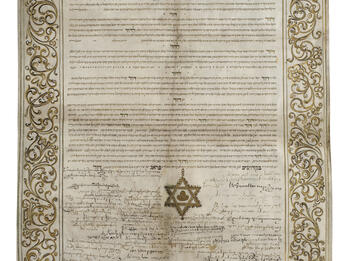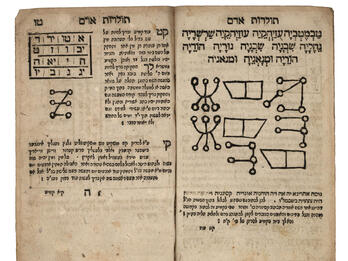Constantinople Officials
The Va‘ad pekide Kushta (Constantinople Officials for the Land of Israel) was first established in 1700. Roused by the plight of Judah Hasid’s followers in Jerusalem, Jews in Constantinople sought to help alleviate the suffering of Jerusalem’s Jews and contribute to settling their debts. However, the Constantinople Officials emerged as a permanent, organized body responsible for supervising the collection of funds for Jews in the land of Israel only in 1727, and these were mainly used to pay debts, taxes, and bribes. The Constantinople Officials effectively became rulers of the Jewish communities in the land of Israel, with subcommittees for Jerusalem (the largest, with seven representatives), Hebron, Safed, and Tiberias. As such, the Jewish community in the land of Israel was a branch of the Constantinople community, lacking any autonomy. The Constantinople Officials intervened vis-à-vis the ruling authorities and in internal Jewish disputes selected community officials, instituting regulations, for example, limiting settlement in Jerusalem to persons older than the age of sixty when the population grew too rapidly. This continued until the late eighteenth century, when the importance of the officials began to wane.



